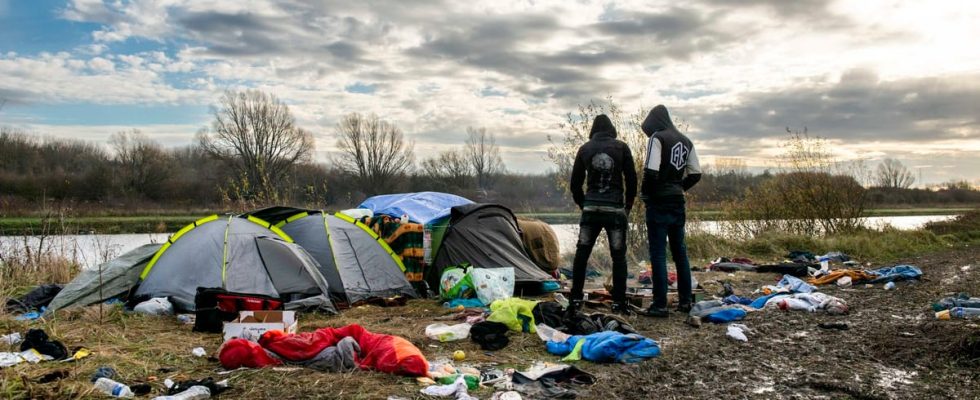BRUSSELS — Bitter infighting on Wednesday derailed EU ambassadors’ attempts to finish off the last plank of the EU’s flagship migration reform.
As a result, officials will have to break for the summer without completing work on the overall package, which would reshape how the EU processes and relocates migrants across the Continent.
The stumbling block proved to be the so-called “crisis mechanism,” which details measures to lift pressure on EU border countries facing spikes in people seeking asylum.
Frontline countries, mostly in the south, are keen to be relieved of certain requirements if arrival numbers skyrocket, but northern countries are wary of rescinding some rules.
The result was a stalemate this week — and a decision to come back at it after the holiday break. There was even speculation that the talks might slip all the way to a meeting of home affairs ministers at the end of September.
“The latest draft landed very late,” said one EU diplomat who like others spoke on condition of anonymity to discuss internal matters. “And several countries wanted to have more time to analyze it.”
The development is a setback for EU officials, who were hoping to reach a deal on the crisis regulation before the end of the summer and then negotiate with the European Parliament on a final agreement. Parliament has indicated it won’t approve other files under negotiation until EU countries reach a deal on the whole package.
A second EU diplomat expressed “disappointment” for missing the unofficial end-of-July deadline.
But he indicated that the EU still intends to approve the entire asylum package before the European parliamentary election in June next year.
The Nordics say no
EU countries came close to a deal in grueling negotiations that stretched late into Tuesday night.
But the agreement fell apart on Wednesday morning as the classic division between southern frontline states and Nordic countries, where asylum seekers often move without permission after arriving, came to the fore.
EU states clashed over a proposal to suspend countries’ right to return migrants to their country of arrival if the first country has reached “crisis” conditions. The decision on when to trigger these rules will be up to EU capitals, according to the draft text seen by POLITICO.
In a last-minute concession to Nordic states, the Spanish presidency of the EU — which is overseeing the talks — narrowed the scope of the rule, according to the document. But that was not enough to get the northern countries on board.
Nordic states were also unhappy about a “crisis” exemption allowing frontline countries to pause strict migrant border checks.
Remaining hopes of reaching a deal collapsed when Germany — the EU’s biggest country — indicated it would not support the text.
Berlin stood against the suspension of migrant returns to frontline states and demanded that minors and their families be exempt from border checks, according to a third EU diplomat with knowledge of the proceedings.
Visegrád strikes back
Eastern countries also helped kill the deal — and are expected to hold the line when talks will re-start in September.
Migration hardliners from the so-called Visegrád Four —Slovakia, Poland, Hungary and the Czech Republic — rejoined forces on Wednesday against the crisis regulation.
Their key demand: stronger language and measures to support countries facing an engineered influx of migrants meant to destabilize the EU — akin to what Belarus did to Poland in 2021.
“It was mentioned by all Visegrád countries, but it was unclear what they were asking in practice,” the first EU diplomat said.

